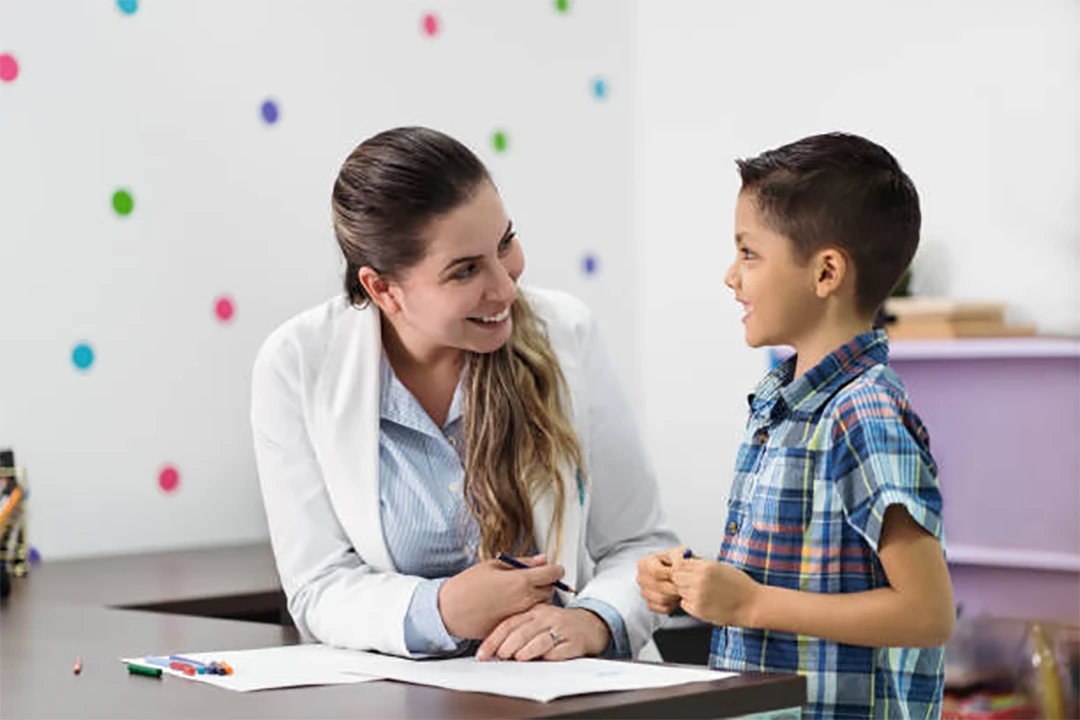
Over the last few years, there have been concerns about the number of children and youth who are developing mental health issues and needing to seek assistance. It’s believed that about 1 in 5 children are reporting signs of anxiety, depression, or both. With that comes a concern about access to therapies and medications to assist. Whether it’s to help with specific anxieties or worries, or working on overcoming phobias – what are the benefits of talking therapies for children?
Why might children need talking therapy?
The act of simply sitting down and talking to someone about fears, worries, or health concerns can be hugely beneficial. After all, we already know ‘a problem shared is a problem halved’. For children, it can be very important, especially now, given the times we live in. 24-hour-a-day connectivity and social media add extra pressure to young people who are already finding it challenging to navigate life.
Some of the most common reasons children might experience symptoms of anxiety and depression include (but are not limited to):
- bullying at school
- worries about studying/schoolwork
- fears about body image
- peer pressure and external stressors from friendship groups
- social media pressure and online bullying
- concerns about parental relationships and stress at home.
Any or all of the above are factors that can induce feelings of stress and worry that feel insurmountable for young children. It’s how parents, carers, and guardians – alongside schools and educators, deal with these paramount issues.
24-hour connected lifestyles can be an issue for children
There’s no doubt that social media and living our lives permanently online can have an impact on the mental health of youngsters. The issues highlighted above seem concentrated by this somehow. Children who spend more than three hours a day on social media can face double the risk of experiencing mental health issues such as anxiety and depression. That’s according to statistics from HHS.gov.
In the USA 95% of 13-17 year olds report that they use social media platforms regularly. Two-thirds of that group say they use it every single day and a third of that figure report that they’re online pretty much constantly.
It’s suggested that most children spend way above this amount of time online, already – and so it’s little wonder that their mental health is suffering. When a group of youngsters aged 13-17 were asked about the impact social media had on their body image, 46% of those questioned said that they felt it harmed their health and made them feel worse about themselves.
At a time when there is more concern than ever about the mental health of children and young people, it’s clear that more needs to be done to protect them, whilst allowing them some freedom at the same time. It’s a tricky act to balance and one that needs care and thought to make it work properly.
Getting children to open up and talk isn’t always easy
There’s no doubt that getting children to talk and open up about their feelings can be a somewhat onerous task as a parent. A balance has to be struck, and there can be dividing lines that are difficult to cross.
On the one hand, you want your child to be safe – to know they can come to you and chat anytime, but there are sometimes subjects that might feel more difficult than others to broach sensitively.
It’s important to remember that there are always options and that your child should never feel that they’re alone, or that as a parent – you have no support either. Therapy can be a huge boon, and having an appropriately qualified counselor on-side, someone who can perhaps diagnose issues and offer safe treatment pathways can be a fantastic way to start.
Talking therapy for children
Counseling can provide a welcome respite and a place in which a young person has time and space to open up and discuss their feelings, with a non-judgemental third party who can offer advice and coping strategies to ease anxiety and low mood, whatever their cause may be.
In a lot of cases, signs and symptoms of low mood and anxiety will ease, with someone to talk to, who can offer coping strategies and tips to help ease the mental burden that many youngsters face.
Finding someone to help need not be an overwhelming experience either. Dedicated services such as Decade2Connect offer talking therapy and outpatient services for children who are experiencing mental distress and need someone trustworthy to talk to in times of trouble. Opening up and speaking to a clinical professional is essential to lessen the mental burden and deal with traumatic issues for youngsters.
Therapy can come in many different forms, whether it’s cognitive behavioral techniques, exposure-response, and prevention (useful for social anxiety and phobias), or simply person-centered therapeutic interventions in which the child and their therapist decide on a personalized approach to treatment that suits the individual.
In some cases, particularly if a youngster has issues with self-image that manifest as eating problems, or eating disorders such as anorexia, bulimia, ARFID, or OFSED regular treatment taken either as an inpatient or as an outpatient can be of great help. Encouraging healthier body image, and letting youngsters know that food is not the enemy can be a liberating experience for everyone. A healthy body feeds a healthy mind.
In conjunction with these sometimes creative therapies are offered too, such as art or music, designed to help not only deal with inner trauma and worries but to help release anxiety positively and beneficially, whilst creating something personal and unique.
Whether offered short-term or longer-term, counseling and talking therapies provide a specialist way of helping children and young people navigate difficult times in their lives, and providing them with the life skills to move forward into adulthood knowing how to cope proactively. It’s an important process that should be rightfully recognized for the benefits it can bring to everyone.
Comments
comments